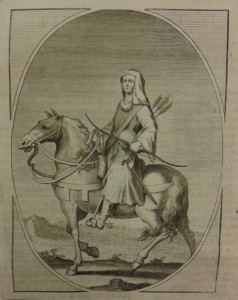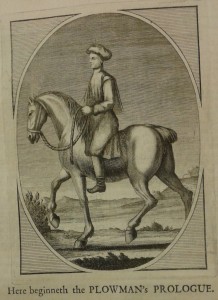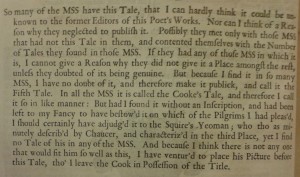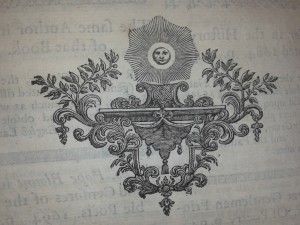Urry takes it upon himself to alter the order of the tales, which effects how the tales interact with each other. The Prologues preceding the tales are thus altered slightly, as the conversation between pilgrims is altered to accommodate these changes in tale order.
As stated above, two of the additional tales, as mentioned in the title, are not included in this edition. However, the Plowman’s Tale is included even though it is not considered one of the three additional texts. This tale is only found in one particular manuscript, making it unlikely that it was composed by Chaucer.


It seems unlikely that the Plowman would expose such controversial views than was conventional at the time. His demeanour in the Prologue is expressly characterized as an ideal Christian: “God loved he best with al his hole herte / At all times, thogh him gamed or smerte, / And thanne his neighbour right as himselve” (535-537). This tale itself contradicts this characterization and also aligns the Plowman with the Peasants’ Revolt of 1381. His selflessness regardless of his less-fortunate social position and his love of god suggest that the Plowman’s Tale is erringly attributed to Chaucer.

One of the three additional tales that is found in this edition is “The Coke’s Tale of Gamelyn.” This is a tale about Robin Hood that Urry has attributed to the Cook. However, he includes a picture of the Squire’s Yeoman, which is not even one of the pilgrims in The Canterbury Tales.


The inclusion of this tale into this edition is justified:

Finally, Urry concludes the tale with a disclaimer:




